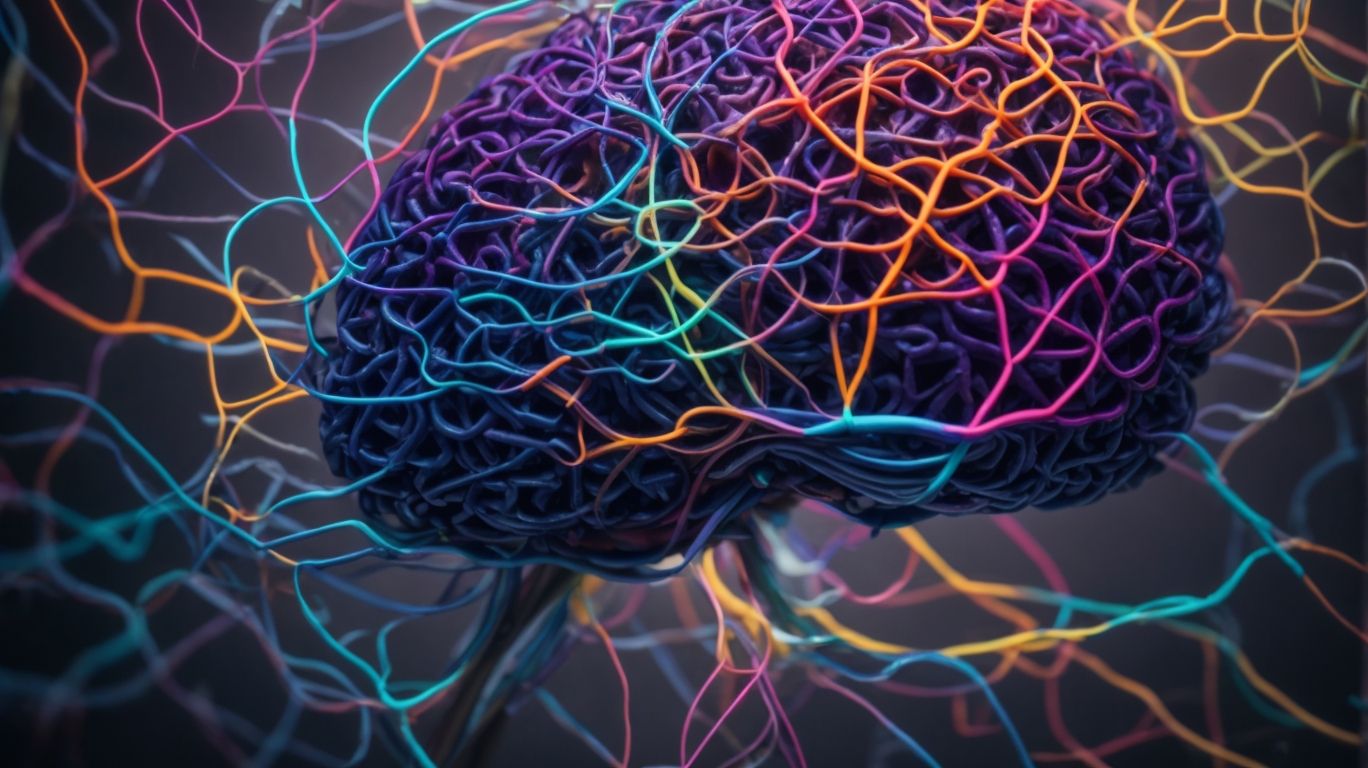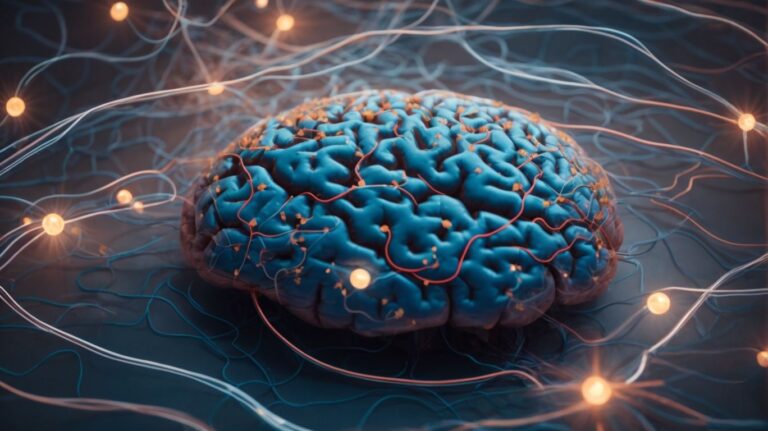Have you ever found yourself completely consumed by thoughts of someone, feeling an intense attraction that borders on obsession? You may be experiencing infatuation. In this article, we will delve into the psychology of infatuation, exploring the signs, causes, and differences between infatuation and love. We will also provide tips on how to overcome infatuation and regain a sense of clarity and perspective in your relationships.
So, let’s explore the world of infatuation together.
Contents
What Is Infatuation?
Infatuation is a powerful emotional state characterized by intense feelings of passion and obsession towards another individual. It often involves idealizing the person and experiencing a surge of dopamine and serotonin, creating a euphoric and exciting experience.
These intense emotions in infatuation can lead individuals to place their romantic interest on a pedestal, ignoring any potential flaws or red flags. The rush of dopamine amplifies feelings of pleasure, tying positive experiences with the person they are infatuated with, reinforcing the cycle of infatuation.
- In romantic relationships, infatuation can be seen in the early stages where partners are consumed by each other’s presence, leading to an almost addictive desire to be around the other person.
- Infatuation is not just limited to romantic interests; it can also be experienced towards celebrities, idols, or even fictional characters, showcasing how versatile and consuming this emotional state can be.
What Are The Signs Of Infatuation?
Recognizing the signs of infatuation is crucial in understanding this intense emotion.
One of the key signs of infatuation is the intense attraction towards the person, where you may find yourself drawn to them in a magnetic and irresistible manner. This overwhelming desire to be close to them and feel their presence can be a strong indicator of infatuation.
Idealization of the person is another common sign, where you tend to view them through rose-colored glasses, ignoring any flaws or imperfections they may have.
Obsessive thoughts and behaviors are also prevalent in infatuation. You may find yourself constantly thinking about the person, replaying interactions in your mind, or checking your phone repeatedly for any sign of contact from them.
The emotional rollercoaster of infatuation can be intense, with soaring highs and devastating lows. You may feel euphoric when things are going well, but crushed when faced with any potential rejection or indifference from the person.
Intense Attraction
Intense attraction is a hallmark sign of infatuation, where individuals feel a strong pull towards their crush, often experiencing a rush of dopamine that heightens their feelings.
When someone is infatuated, their heart races at the sight of the person they desire, their palms may sweat, and they may struggle to concentrate due to the overpowering thoughts of their crush.
Dopamine, a neurotransmitter associated with pleasure and reward, floods the brain during these moments, triggering pleasurable sensations that drive individuals to seek more interactions with their object of affection.
This chemical reaction can lead to obsessive thoughts, increased energy levels, and even physical symptoms like a fluttery feeling in the stomach or a sense of euphoria that accompanies every encounter with the person of interest.
Idealization of the Person
Idealization of the person is a common feature of infatuation, where individuals tend to see their crush through rose-colored glasses, focusing only on their positive traits and creating an unrealistic image of them.
This idealization leads to perceptual distortion, where any flaws or negative aspects of the person are either overlooked or rationalized away.
It often involves magnifying the virtues of the individual, such as their intelligence, charm, or physical attractiveness, while downplaying or disregarding any imperfections.
In relationships, this idealization can set the stage for disappointment when the reality of the person fails to meet the unrealistic standards set by the infatuated individual.
For example, someone may idealize their partner as always understanding and supportive, leading them to expect constant validation and unwavering affection.
Obsessive Thoughts and Behaviors
Obsessive thoughts and behaviors are prevalent in infatuation, where individuals constantly think about their crush, engage in repetitive actions, and experience a flood of dopamine and serotonin that reinforces these behaviors.
These obsessive thoughts can consume a person’s mind, making it challenging to focus on other aspects of life. Tasks that were once simple may become arduous, as the mind remains fixated on the object of desire.
Repetitive behaviors, such as checking social media for updates, re-reading text messages, or constantly seeking reassurance, can consume hours of a person’s day.
The surge of dopamine and serotonin, commonly known as the ‘feel-good’ neurotransmitters, reinforces these behaviors by creating a sense of pleasure and satisfaction when the individual engages in them.
Emotional Rollercoaster
The emotional rollercoaster in infatuation involves extreme highs and lows, with individuals experiencing euphoria and anxiety in quick succession as their feelings towards the crush fluctuate.
For instance, one moment they may feel on top of the world, convinced that their crush reciprocates their feelings as they exchange meaningful glances and engage in lengthy conversations.
Just as quickly, doubts may creep in, triggering anxiety and insecurity as they overanalyze every interaction for signs of rejection.
This rapid shift from elation to despair can take a toll on personal well-being, affecting sleep, eating habits, and overall mood.
Ignoring Red Flags
In the state of infatuation, individuals often overlook or rationalize red flags in the crush’s behavior or character, focusing solely on the positive aspects and ignoring potential warning signs.
This tendency to turn a blind eye to issues stems from the euphoric and idealized perception that infatuation creates. The brain releases chemicals like dopamine and oxytocin, heightening feelings of pleasure and attachment, which can cloud judgment.
When under the spell of infatuation, people tend to construct a romanticized image of their crush, magnifying their virtues while minimizing flaws. This psychological phenomenon, termed as ‘confirmation bias’, leads individuals to seek out information that confirms their positive perception and dismisses anything that challenges it.
What Causes Infatuation?
Infatuation can be attributed to various factors, including chemical reactions in the brain that release dopamine and serotonin, leading to feelings of euphoria and heightened passion.
These neurotransmitters play a crucial role in the intensity of infatuation, as dopamine is associated with pleasure and reward, while serotonin affects mood and social behavior.
According to renowned anthropologist Helen Fisher, infatuation is linked to elevated levels of dopamine, prompting individuals to seek out their romantic interest and experience intense emotional responses.
Dr. Dug Y. Lee emphasizes that serotonin release during infatuation contributes to obsessive thoughts and idealization of the beloved, creating a sense of euphoria and attachment.
Chemical Reactions in the Brain
Chemical reactions in the brain play a significant role in infatuation, with the release of dopamine and serotonin contributing to the intense feelings of passion and excitement associated with this emotional state.
When dopamine is released in the brain, it triggers a sense of pleasure and reward, fueling the eagerness to be around the object of affection. This neurotransmitter is responsible for enhancing focus and attention on the person we are infatuated with, leading to the idealization of their qualities.
On the other hand, serotonin helps regulate mood and anxiety levels, playing a role in the obsessive thoughts and the ‘butterflies in the stomach’ sensation commonly experienced during infatuation.
Studies have shown that individuals experiencing infatuation have elevated dopamine levels similar to those addicted to substances, shedding light on the addictive nature of romantic attraction.
Unmet Emotional Needs
Infatuation may stem from unmet emotional needs, where individuals seek validation, excitement, and passion in relationships to fulfill gaps in their emotional well-being.
When someone lacks a sense of self-worth or confidence, they might develop an infatuation to feel desired and valued by another person, temporarily boosting their self-esteem. This could manifest as constantly seeking attention or approval from their crush to validate their self-worth. In some cases, individuals who feel bored or stagnant in their lives may project fantasies onto their crush, seeking excitement and thrill through the idea of a new, passionate relationship.
External Influences
External influences, such as societal norms, media portrayals of romance, and peer pressure, can also contribute to the development of infatuation by shaping individuals’ perceptions of love and relationships.
For example, growing up in a society where grand gestures and dramatic declarations of love are glorified in movies and television shows can lead individuals to believe that such behaviors are essential in a romantic relationship. This can create unrealistic expectations and pressure to constantly display affection in an extravagant manner, fueling infatuation based on superficial ideals rather than genuine compatibility. Similarly, cultural expectations regarding gender roles and relationship dynamics can influence how individuals perceive attraction and desire, further impacting the development of infatuation.
How Does Infatuation Differ From Love?
Infatuation and love are often confused, but they differ in several key aspects, including the timeframe of feelings, the depth of emotions involved, and the perception of the person in the relationship.
Infatuation is often characterized by intense passion that may fade quickly once novelty diminishes, typically lasting for a shorter period and focusing more on superficial traits or physical appearance. In contrast, love involves a deeper emotional connection, nurturing growth and understanding over time. Renowned anthropologist Helen Fisher highlights how infatuation activates the brain’s reward system, akin to a drug-induced state, while real love engages various brain regions for empathy, attachment, and long-term commitment.
Timeframe
One significant difference between infatuation and love lies in the timeframe of these emotions, with infatuation often characterized by intense but short-lived feelings, while love develops over time and endures through various stages of a relationship.
Infatuation can be likened to a spark that ignites quickly but fades just as fast, leading individuals to feel consumed by passion or obsession in a brief period.
In contrast, love acts more like a slow-burning flame, nurturing deep emotional connections that withstand the test of time and the challenges of everyday life.
Behaviors typical of infatuation may include idealization of the other person, impulsive decisions based on intense emotions, and a strong focus on physical attraction.
On the other hand, love is often characterized by mutual respect, understanding, and support, with individuals displaying commitment, sacrifice, and patience in nurturing a lasting bond.
Depth of Feelings
The depth of feelings in infatuation and love varies significantly, with infatuation characterized by intense passion and idealization, whereas love encompasses a deeper, more nuanced emotional connection that extends beyond mere infatuation.
Infatuation often involves a heightened sense of euphoria triggered by the presence of the infatuated person, leading to obsessive thoughts and an almost magical admiration for their qualities. In contrast, love manifests through mutual respect, understanding, and a profound sense of companionship built on trust and shared experiences.
Behaviors in infatuation may include an overwhelming desire to impress the other person, constantly seeking their approval, and idealizing them to an unrealistic extent. Conversely, genuine love is demonstrated through consistent support, empathy, and the willingness to navigate challenges together, fostering a deep sense of emotional security and commitment.
Perception of the Person
In infatuation, individuals often view their crush through a lens of idealization and obsession, focusing on the perceived perfection of the person. In contrast, love involves a more realistic and accepting perception of the partner, recognizing their flaws and virtues.
When infatuated, one tends to construct an almost flawless image of the object of their affection in their mind. The feelings are intense and often fueled by a fantasy of perfection, making it challenging to see any negatives. On the other hand, love embraces imperfections and sees them as integral parts of the beloved. Acceptance and understanding flourish, fostering a deep bond built on true appreciation and connection.
This difference in perception significantly impacts relationship dynamics. Infatuation may lead to temporary euphoria but can also cloud judgment and hinder clear communication. In contrast, a foundation of love nurtures trust and encourages open dialogue, laying the groundwork for long-term compatibility and sustainable love.
How Can Someone Overcome Infatuation?
Overcoming infatuation requires a combination of self-reflection, emotional awareness, and practical strategies to redirect focus and manage obsessive thoughts about the crush.
One effective way to work through infatuation is by seeking therapy or counseling to gain insight into underlying emotions and develop coping mechanisms. Therapists can help individuals explore the root causes of their infatuation, address any unresolved issues, and learn healthier ways to navigate romantic feelings.
Along with therapy, shifting focus onto personal growth and hobbies can be instrumental in shifting attention away from the crush. Engaging in activities that bring joy, fulfillment, and a sense of accomplishment can help individuals regain a sense of self-worth and purpose outside of the infatuation.
Acknowledge and Accept the Feelings
The first step in overcoming infatuation is to acknowledge and accept the feelings without judgment, recognizing that infatuation is a natural emotional response to romantic attraction.
It is crucial to understand that feeling infatuated with someone is a common experience, and it is okay to feel this way. Self-compassion plays a vital role in this process. Practice being kind to yourself and offer the same level of understanding you would to a close friend going through a similar situation.
One effective strategy is to challenge self-critical thoughts by questioning their validity. Ask yourself if these thoughts are based on facts or assumptions. Embracing your emotions is not about suppressing them but rather acknowledging and exploring them with a sense of curiosity and openness.
Focus on Reality and Flaws
Shifting focus from idealized perceptions to realistic observations can help individuals overcome infatuation by acknowledging the flaws and complexities of the crush as a real person.
One effective way to achieve this shift is to journal about the crush, listing both positive aspects and characteristics that may be seen as less appealing. This exercise prompts individuals to delve deeper into their feelings, encouraging them to recognize that no one is flawless.
Engaging in conversations with trusted friends or mentors can provide an outside perspective on the crush, helping to highlight aspects that might have been overlooked in the fog of infatuation.
By actively seeking out and reflecting on imperfections, individuals can gradually build a more balanced and realistic view of their crush, ultimately reducing the intensity of infatuation.
Distract Yourself and Engage in Other Activities
Distracting oneself with meaningful activities and hobbies can help shift the focus away from the crush and redirect passion towards personal growth and fulfillment.
Engaging in physical activities such as jogging, yoga, or swimming not only improves physical health but also releases endorphins that uplift mood, potentially decreasing infatuation intensity.
Likewise, cultivating creative outlets like painting, writing, or playing musical instruments offers a therapeutic release for emotions, channeling energy into productive expression.
Joining clubs, volunteering, or exploring new hobbies like cooking, gardening, or photography can broaden one’s social circle and bring a sense of accomplishment, reinforcing self-worth beyond romantic interests.
Frequently Asked Questions
What is infatuation and why is it important to understand its psychology?
Infatuation is an intense and overwhelming feeling of attraction towards someone. Understanding its psychology can help us recognize and manage our own infatuations, as well as understand those of others.
What are the common signs of infatuation?
Some common signs of infatuation include constantly thinking about the person, feeling a rush of excitement when around them, and idealizing them without seeing their flaws.
How is infatuation different from love?
Infatuation is based on intense feelings of attraction and desire, while love is characterized by a deep emotional connection, trust, and understanding. Infatuation is often short-lived and can turn into love over time.
What causes infatuation?
Infatuation can be caused by a combination of physical attraction, idealization of the person, and a desire for emotional validation. It can also be triggered by the release of certain chemicals in the brain.
Can infatuation be dangerous?
Infatuation can be dangerous if it becomes obsessive and interferes with daily life or leads to unhealthy behaviors. It can also lead to disappointment and heartbreak if the feelings are not reciprocated.
How can I overcome infatuation?
To overcome infatuation, it is important to acknowledge and understand your feelings, practice self-awareness and self-care, and maintain a realistic perspective. It may also be helpful to seek support from friends and loved ones.




